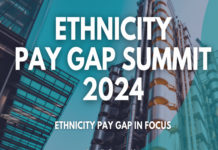Only 2% of this year’s graduating Generation Z want to work remotely full-time, according to a new study.
Graduating classes of 2021 from the UK, France and the US have largely “rejected the idea of a virtual working experience”, according to recruitment platform iCIMS. Around two-thirds of graduating Gen Z want to work in an office for their first job post-graduation, revealed the iCIMS Class of 2021 report.
“The class of 2021 is entering the workforce at a time when the traditional aspects of the workplace experience are being called into question,” commented Jewell Parkinson, Chief People Officer of iCIMS. “On one hand, the desire for flexibility is paramount for all; but on the other hand, this up-and-coming generation also wants and needs the experience of social connection and ingraining themselves within an inclusive learning culture where physical space matters. As businesses consider their next steps, they cannot ignore the impact of how and where they work will have on their ability to attract, engage, hire and advance talent and be successful.”
DE&I & SALARY EXPECTATIONS
The iCIMS Class of 2021 report also found that Gen Z graduates also underestimate their worth in the current job market. Graduates are leaving close to $15,000 in earnings on the table when HR professionals expect to pay 22% more for an entry-level salary than in March 2020. HR professionals in the US have increased the year-over-year average salary for entry-level employees, now reaching $66,600. That’s an 11% increase over 2019; and 22% over 2020. While US graduates only anticipate earning an average of just under $52,000 annually, these individuals are in a much stronger negotiating position than they might realise. In the UK, graduates can expect to earn an average salary of around £27,000 annually. In France, the average entry-level earnings expectation is approximately €31,500.
Diversity, equity and inclusion (DE&I) are also critical for new Gen Z hires, revealed the study. Around 72% graduating students strongly expect or require employers to be committed to DE&I during hiring practices; with 58% looking to learn about it explicitly within interviews. HR professionals largely agree and have increasingly looked to spotlight these efforts accordingly. In fact, 59% say they use the interview to promote diversity. That said, HR professionals are mindful of ensuring their DE&I efforts communicated; as 46% are either very or extremely concerned that their existing DE&I initiatives are not visible enough to applicants.

TALENT PIPELINE CONCERNS
The research also reveals that as businesses continue to adapt their post-pandemic strategy, there are varied areas of concern for HR professionals and graduating students looking for their first role. Additional key findings reveal that:
- Digital recruitment tools need to support human connections. According to US HR professionals, 97% plan to use video tools like video interviewing and video job descriptions within the hiring process over the next 12 months. The majority of students (80%) believe that they best present themselves to potential employers during in-person interviews. HR professionals have an opportunity to bridge this gap by educating the incoming Gen Z workforce on how video benefits the hiring process.
- Talent pipelines are underserved. While HR professionals are looking to fill a range of entry-level positions, few consistently nurture a long-term pipeline of candidates. In fact, only 28% do so proactively. When it takes, on average, six and a half weeks to fill a position and the turnover rate for entry-level roles has reached 57%, this lack of proactivity may cause critical skills gaps and talent shortages.
CREATING FUTURE LEADERS
“A commitment to future leadership is foundational to organisational success, especially now,” stated Marie Artim, Vice President of Global Talent Acquisition of Enterprise Holdings. “This begins with a focus on the candidate experience, continuously engaging with talent to ensure they feel connected with throughout the hiring journey with your business. This year’s college graduates face a unique job market surrounded by challenging circumstances. At Enterprise, this puts an even stronger onus on our hiring teams to build meaningful relationships and bring in the best future leaders to drive our business forward.”
CollegeGrad.com rated Enterprise Holdings as 2021’s number one entry-level employer. iCIMS will holding a two-day virtual INSPIRE conference on 16-17 November 2021 to help DE&I/talent leaders build strong talent pipelines/teams; and explore innovative recruitment solutions. Click here for more information.
Generation Z is also setting the agenda for the future of work, reveals a new study. Click here to read more.





































